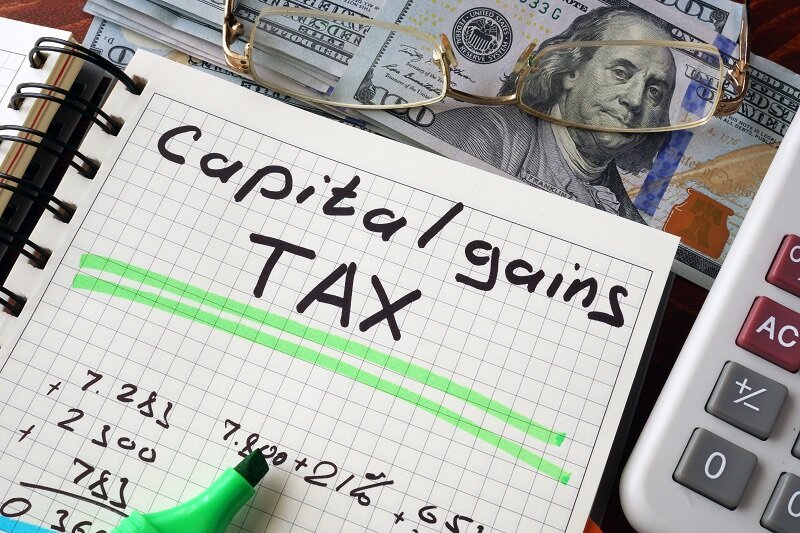
Selling real estate comes with various costs. While selling to cash home buyers in Kirby allows you to save on many closing costs, there are still various other costs you must pay, including property taxes.
Luckily, as a Texas taxpayer, you are exempt from state capital gains taxes, unlike taxpayers in other states. However, that doesn’t mean you are altogether exempt from taxes on your home sale. Here is what you need to know about paying capital gains tax in Texas.
Does Texas Have Capital Gains Taxes?
No. If you live in Texas, you’re lucky. It’s one of the seven states that do not levy a state income tax on filers. Similarly, Texas does not impose any capital gains taxes when selling a house.
However, there’s an important disclaimer to this. While Texas doesn’t have income taxes, the federal government does, regardless of which state you live in.
The Internal Revenue Service may still require you to pay capital gains taxes when you file your tax return. The amount you will pay will depend on your filing status and tax bracket, as well as the conditions of the home sale. There are ways to get out of paying the federal capital gains tax in Texas by making your capital gains tax-free, though.
We’ll talk about getting a tax exemption on your capital gains later. First, though, what are capital gains?
Capital Gains Taxes in Texas
Since the Texas tax code does not tax capital gains, unlike most states (including New York and California), you will only have to pay capital gains taxes at the federal level.
Capital gains tax in Texas are taxes the government makes you pay on the profit you earn from selling properties, stocks, and other assets. Consider it one of the costs of selling a house.
Let’s say you bought a house at a purchase price of $100,000. Then, several years later, the housing market becomes hot, your home’s value increases, and you sell it for $200,000. That extra $100,000 profit you make is a capital gain. Uncle Sam obviously wants a portion of your profits, just like it wants a part of your other income during each tax year.
Capital gains taxes fall into one of two categories. First, a short-term capital gains tax is when you sell an asset within a year of purchasing it. The IRS taxes those capital gains at the standard income tax rate, which depends on your income tax bracket and can be as high as 37%.
If you hold your property or asset for longer than a year, you can save on taxes, as long-term capital gains tax rates will apply. The tax rate will be either 0%, 15%, or 20%. Twenty percent is the maximum. However, you may also have to pay an additional 3.8% net investment income tax if you meet certain income thresholds.
Capital Gains Taxes on Real Estate in Texas

As we mentioned, there are a few ways to avoid paying capital gains taxes to the federal government when selling a house in Texas. Your home must meet several requirements, though.
- The house must have been your primary residence for at least two of the last five years. If you’ve been renting it out, you may not qualify for an exemption.
- You must have owned the home for at least two years out of the last five.
- The exemption applies to the first $250,000 in capital gains when filing a single tax return and $500,000 when filing a joint return.
The $250,000 exemption applies to the capital gains, not the total sales price.
In other words, let’s say you’re filing a single return. You qualify for a $250,000 tax exemption on your capital gains. So if you bought the house for $250,000 and sold it for $500,000, you don’t have to pay any capital gains taxes. However, if you bought the house for $250,000 and sold it for $550,000, you will have to pay capital gains taxes on the last $50,000.
It can get more complicated than that, so get a tax professional to help calculate your capital gains. The IRS defines capital gains as the difference between the sales price and your basis in the property. That includes the purchase price and the capital improvements you’ve made to the property.
A capital improvement can include renovations to your property, but they are distinguishable from ordinary repairs by meeting specific criteria. They typically increase the property’s value, endure for a year or more, and increase the property’s cost basis.
Let’s go back to our last example. Let’s say you bought a house for $250,000 and sold it for $550,000. However, you also invested $50,000 in capital improvements. In that case, you still qualify for a capital gains exemption because the difference between the purchase price + the capital investment you made and the sales price isn’t more than $250,000.
Homeowners may only take this exemption once every two years. So, technically, you can sell your primary residence every two years and never pay capital gains taxes if your capital gains do not exceed the $250,000 limit. However, if you sell twice within two years, the exemption won’t apply the second time around.
What if you move before living there for two years? If you lived there for one year, you might qualify for a $125,000 exemption. If you had to move due to health issues or because your job relocated you (as opposed to a voluntary relocation) before the two years, you may also qualify for a partial exemption, though not for the total exemption.
Note that if you moved because of a job relocation, your new replacement job must be more than 50 miles away from your original home than your previous workplace. For example, if your last workplace was 5 miles away from your home, your new workplace must be at least 55 miles away.
Military members may also be exempt from the two-year rule for up to 10 years, with certain limitations, if the army requires them to move at least 50 miles away from their home, forcing them to sell.
Note that even if you qualify for an exemption, you still have to report your gains on your tax returns.
Capital Gains Taxes When Selling a Rental
You qualify for an exemption on capital gains taxes when your rental home was your primary residence for two out of the last five years. For example, let’s say you rented your home for three years and then lived in it for two. It would not be subject to capital gains taxes (up to $250,000).
However, if you didn’t use it as your primary residence for at least two out of the past five years, you will have to pay capital gains taxes. That applies even if you used the property as your secondary residence, such as a vacation or summer home.
If you owned it for a year or less before selling, you would have to pay short-term capital gains taxes at your standard income tax rate. However, if you own it for more than a year, you’ll pay a lower tax amount of up to 20%.
There are other ways to get out of paying capital gains taxes, though. Tax harvesting is one common loophole. It involves offsetting the capital gains you earned on one asset with the capital losses you lost on another investment.
For example, let’s say you bought a house and sold it for more than the original price. That same year, you bought an investment property or even stocks and sold them at a loss. Your capital losses offset your capital gains. You can even purposely sell stocks at a loss to offset your gains and avoid paying taxes.
Another loophole is the 1031 exchange, as per Internal Revenue Code Section 1031. Suppose you sell an investment property and exchange it for another by buying a similar property in a specific period. In that case, you can qualify for this loophole and avoid capital gains taxes.
However, you must meet certain conditions. It must be a like-kind real estate property for business or investment purposes, and you must also close escrow on the second property within 180 days of closing escrow on the first one. You must also identify the second property in writing within 45 days of closing escrow on the first one.
Furthermore, you must use an intermediary to handle your exchange and hold your funds. You will not be able to access your funds between selling the first property and buying the second one if you want to qualify for this exemption.
Wrapping It Up
Calculating capital gains taxes can be a hassle, but there are ways to simplify the home sale process. For example, if you are trying to sell a house fast in San Antonio, you can avoid paying extra fees on your home and get your cash quickly.
We buy houses Texas homeowners want to sell for cash, and we can also help with selling a house with tax lien.
